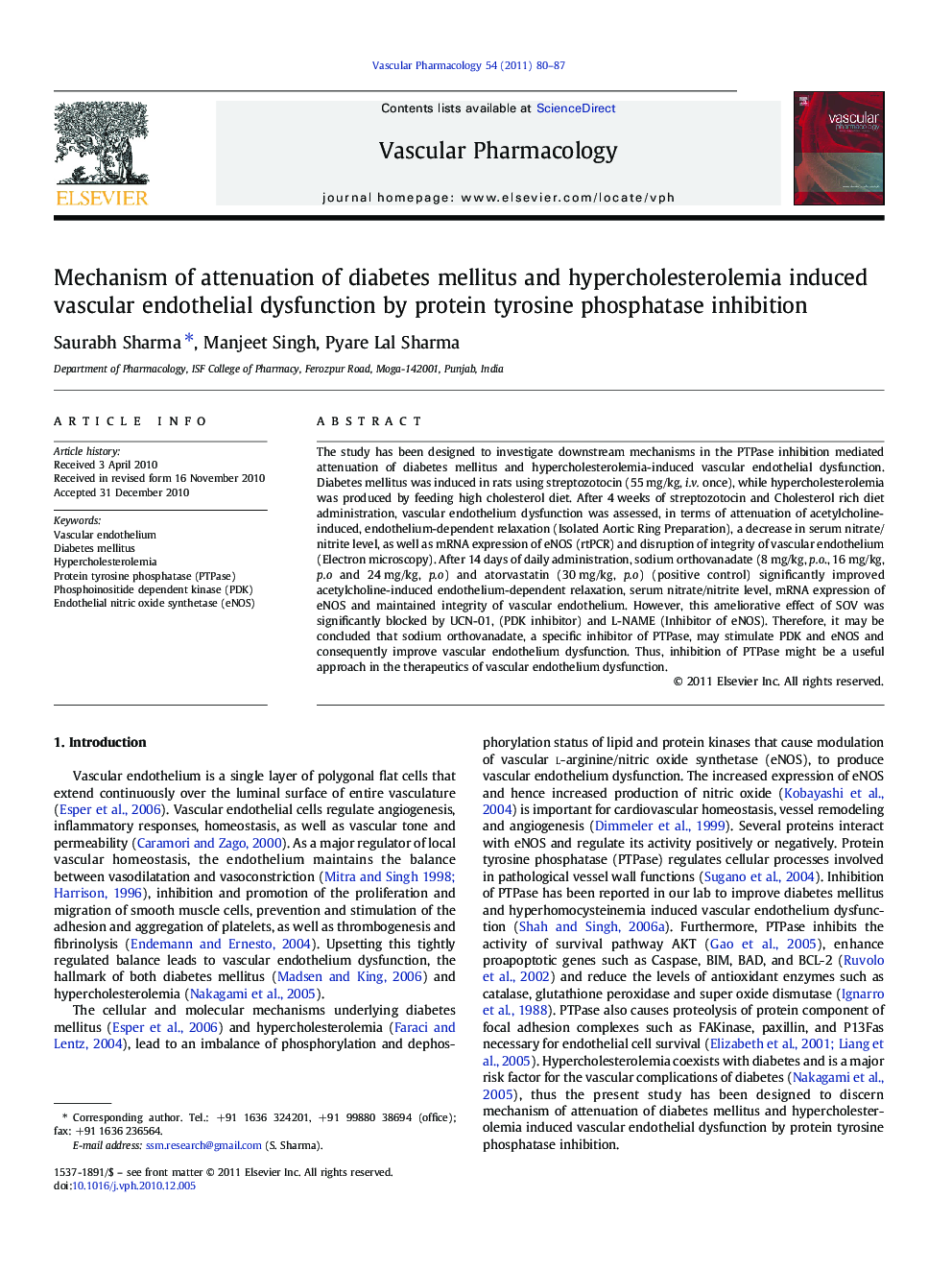| Article ID | Journal | Published Year | Pages | File Type |
|---|---|---|---|---|
| 2574406 | Vascular Pharmacology | 2011 | 8 Pages |
The study has been designed to investigate downstream mechanisms in the PTPase inhibition mediated attenuation of diabetes mellitus and hypercholesterolemia-induced vascular endothelial dysfunction. Diabetes mellitus was induced in rats using streptozotocin (55 mg/kg, i.v. once), while hypercholesterolemia was produced by feeding high cholesterol diet. After 4 weeks of streptozotocin and Cholesterol rich diet administration, vascular endothelium dysfunction was assessed, in terms of attenuation of acetylcholine-induced, endothelium-dependent relaxation (Isolated Aortic Ring Preparation), a decrease in serum nitrate/nitrite level, as well as mRNA expression of eNOS (rtPCR) and disruption of integrity of vascular endothelium (Electron microscopy). After 14 days of daily administration, sodium orthovanadate (8 mg/kg, p.o., 16 mg/kg, p.o and 24 mg/kg, p.o) and atorvastatin (30 mg/kg, p.o) (positive control) significantly improved acetylcholine-induced endothelium-dependent relaxation, serum nitrate/nitrite level, mRNA expression of eNOS and maintained integrity of vascular endothelium. However, this ameliorative effect of SOV was significantly blocked by UCN-01, (PDK inhibitor) and L-NAME (Inhibitor of eNOS). Therefore, it may be concluded that sodium orthovanadate, a specific inhibitor of PTPase, may stimulate PDK and eNOS and consequently improve vascular endothelium dysfunction. Thus, inhibition of PTPase might be a useful approach in the therapeutics of vascular endothelium dysfunction.
Graphical abstractFigure optionsDownload full-size imageDownload as PowerPoint slide
